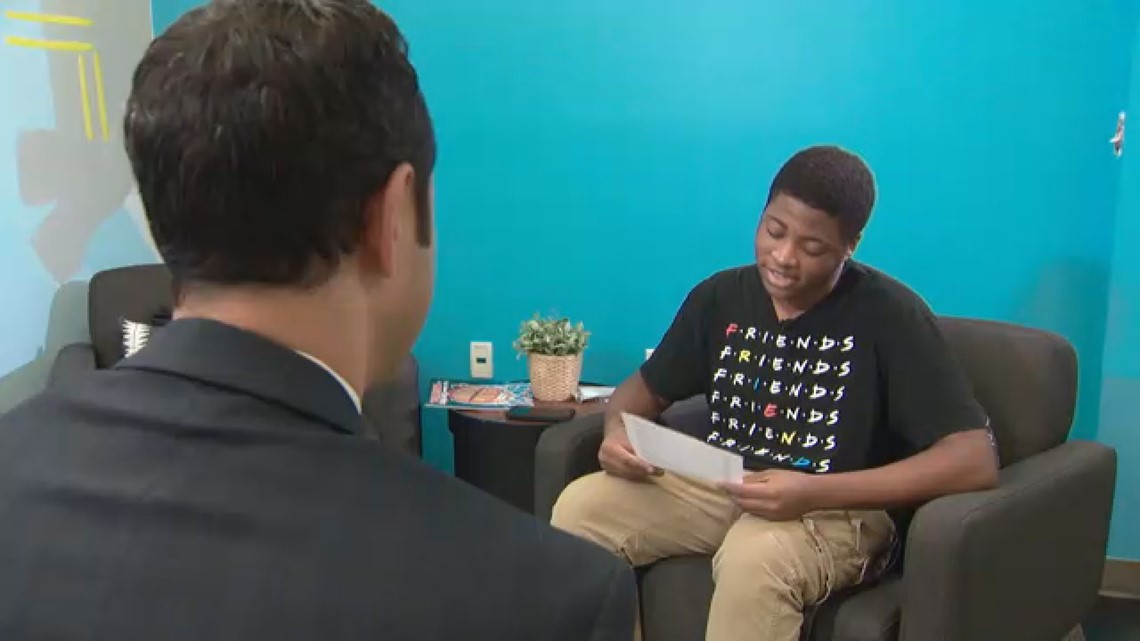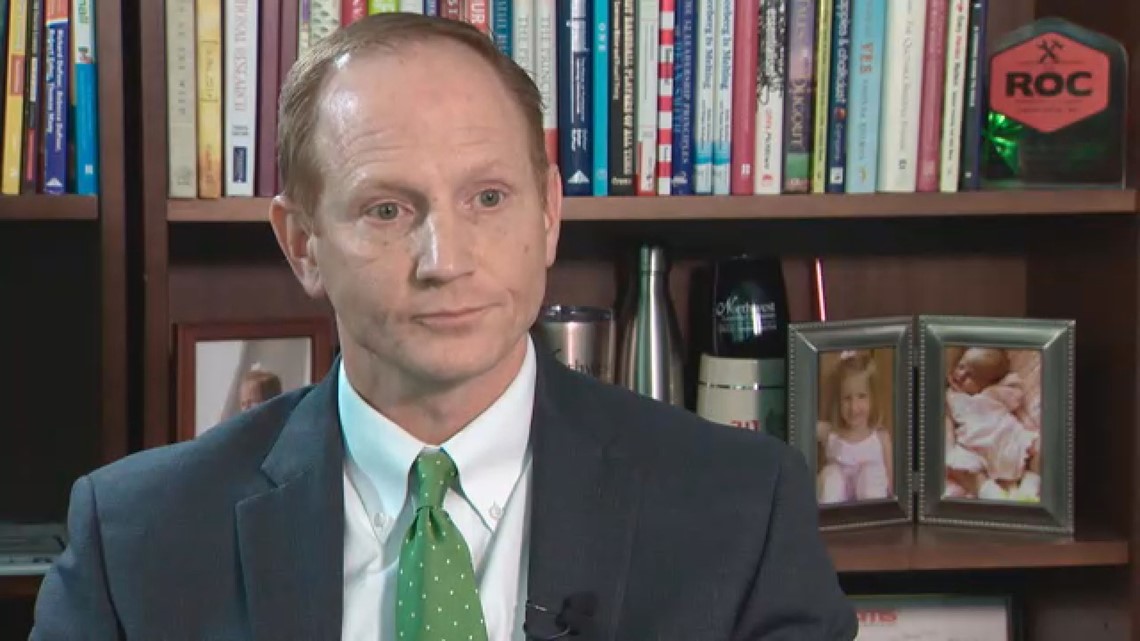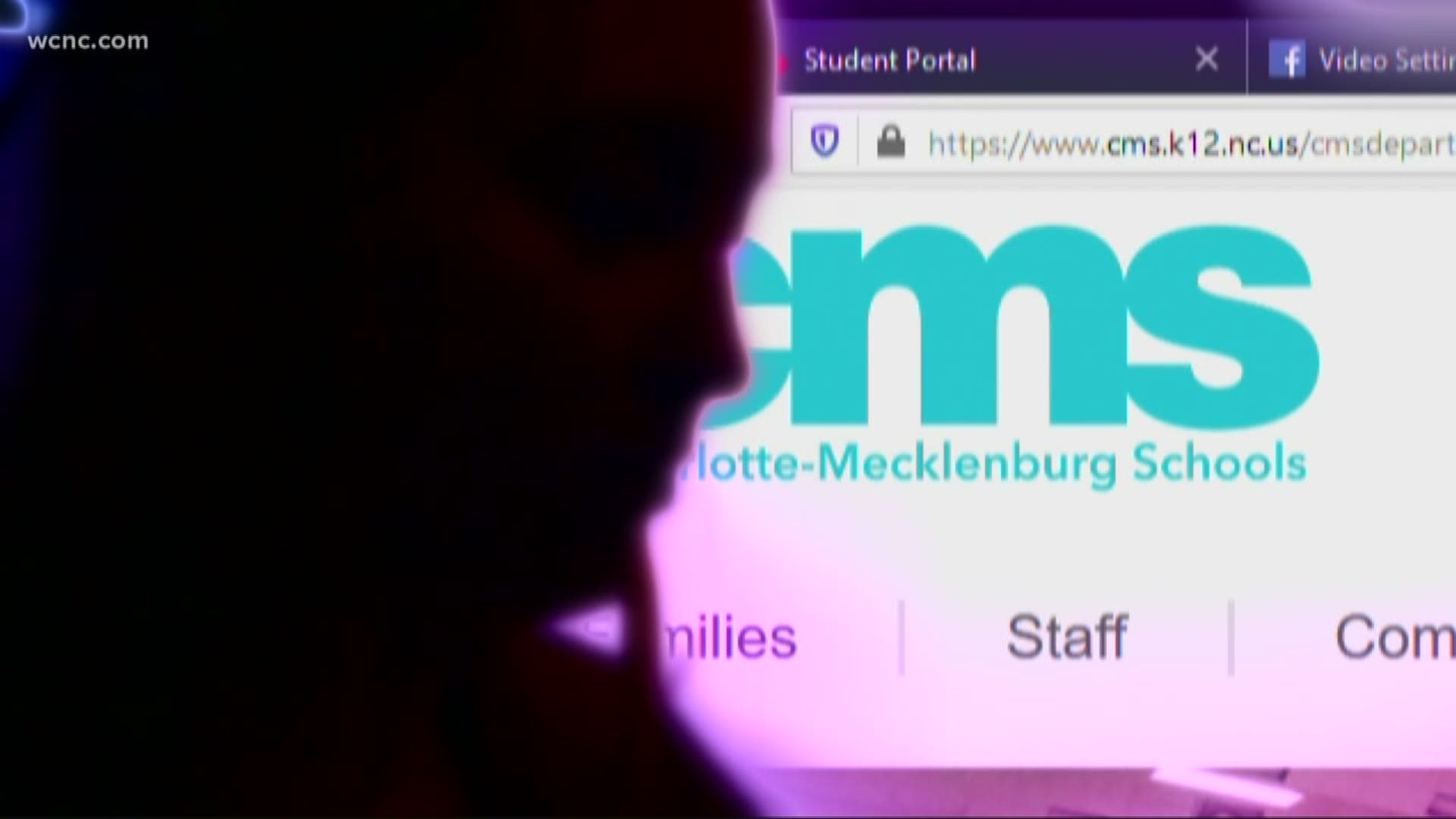CHARLOTTE, N.C. — While most seniors put in the hard work to graduate, educators told WCNC Charlotte that some Charlotte-Mecklenburg high schools give some kids an unfair, easy, last-second advantage to get their diplomas.
After WCNC Charlotte brought those concerns to CMS, administrators said they want more information, so they can investigate further.
"I don't believe that is a system-wide epidemic," CMS Deputy Superintendent over Academic Services Dr. Matthew Hayes said. "I think this, if valid, is something that is maybe specific to one or two schools and we need to look into that."
Interviews with educators, along with analysis of CMS credit recovery records, show the school district allows failing seniors to recover credits online just days before commencement -- often in a single day.
INVESTIGATION UPDATE: State superintendent calls for higher credit recovery standards
"A student that I know had to go to summer school and they only missed two points from passing a class that they had to graduate and that student was not allowed to walk, but another student had a very, very low grade, much lower than two points, and that student was allowed to sit on the stage and walk," one educator said. "We're just setting the students up for failure by allowing that kind of behavior."


Another educator from a different CMS high school expressed similar concerns.
"Typically, teachers would be approached and strongly encouraged to help a student graduate," that educator said. "We were being approached two days before graduation and being told this child needs to graduate, put them in credit recovery and miraculously finish the course in two days and then we see them at graduation walking the stage."


Afraid of retaliation, the educators asked that we protect their identities.
Both shared similar stories about struggling seniors and CMS' online credit recovery program.
"It's infuriating and it's heartbreaking," one educator said. "It makes you question everything [you] got into education for."
"I think it sends a very poor message that it's ok to cheat," the other said. "I just think we're setting our students up for failure."
Online learning is meant to help failing students make things right. Think of it as a second chance for students like Charles Gerald.
"I'm in credit recovery because I messed up on my end," the Rocky River High School senior said. "I do give myself the fault to blame."


Gerald said he sat in a classroom cubicle after school on Tuesdays and Thursdays last semester and put in hours upon hours of work in front of a computer to recover his credits, so he can graduate this year.
Imagine his surprise when we showed him just how little time seniors at other high schools spent in credit recovery in the two weeks leading up to graduation day last year, some just days before graduation.
"It's not right," Gerald said. "If you're just going through the program and not learning anything, you just copy and paste your whole life and you ain't really going to go nowhere, are you?"
CMS documented more than 80 courses that started during that timeframe.
Records show in at least 40 of those courses, a student put in less than nine hours of total work. Most started and finished the course the same day, according to records.
"That just shows you right there, the courses is just being ran through," Gerald said.
BELOW: See available courses by CMS school.
CMS records show a chemistry course started and ended in two minutes, an American history course started and ended in 22 minutes and an English course started and ended in 32 minutes.
Many of the high schools represented are among the schools with historically lower graduation rates, according to CMS data.
"It teaches students that a high school diploma can be something that can be given to you instead of earned," Students for Education Reform Director of Organizing Sharika Comfort said. "There's a reason the traditional academic calendar year is 185 days -- and four hours and you get the exact same credit as a student who may have sat in the course for 185 days? That doesn't make sense."
Comfort has long advocated for credit recovery reform.
"Having worked in a CMS school that utilized credit recovery, the last two weeks of school...students administration have known throughout the year are not performing well and now trying to get those graduation numbers," Comfort said. "We measure schools by graduation numbers, especially the high schools, and that does nothing for the student."
WCNC Charlotte first requested an on-camera interview with CMS last month. It took us showing up, as promised, to a school board meeting before the school district agreed to the interview.
"Our students, when they get a diploma from us, it has to be worth the paper it's written on," Dr. Hayes said.


The deputy superintendent said CMS is concerned by the allegations and can't justify them.
"I was a little disheartened that we were hearing about it through the media and not from within house, because we do not want these things to linger," he said.
Beyond those cases, he defended credit recovery.
He said the program doesn't require students to retake an entire course. Instead, he said failing students only need to make up whatever subject matter they've shown deficiencies in.
"The student is only recovering what's needed in which to earn the pass for the course," Dr. Hayes said. "There is no set amount of time."
He said the end goal is mastery of content and a course grade of at least a 60.
"Most of the credit recovery courses that were started, started and ended the same day, a couple days before graduation. Is that fair?" WCNC Charlotte asked.
"It goes down to the individual student, what was needed to show mastery towards that content," he responded. " I would have to know exactly what it is that they're being asked to complete in which to then show mastery in that content."
CMS has a contract with Edgenuity to offer online learning and credit recovery. The company echoed the school district's stance on how much time is spent in an online course.
"The course time can range significantly, depending on how much content the student needs to recover," an Edgenuity spokesperson said. "The way most districts implement Credit Recovery, students can pretest out of lessons if they demonstrate mastery – determined by the district – on a 10-question quiz at the start of each lesson. So a student may pretest out of many lessons, a few lessons, or no lessons at all. In general and not specific to any one district, an average Edgenuity credit recovery course without pretesting is about the same length as an average traditional course. With pretesting, students can complete the course in less time. However, those students have already sat through the course once."
Credit recovery has a history of criticism. Dr. Hayes said within CMS it remains a work in progress. In fact, the district upgraded its policy to improve integrity last year.
"I feel like we have a lot of checks and balances in place," Dr. Hayes said.
An internal memo shows CMS alerted principals two weeks before graduation last year of the district's "effort to maintain and enhance integrity." That memo went out around the same time educators at two high schools said they witnessed a complete lack of integrity.
"Where is the accountability?" one educator said. "Where is the mastery?"
North Carolina State Superintendent of Public Instruction Mark Johnson knows credit recovery remains a controversial topic.
"We don't want to shortchange students," he said. "We don't want to just have them walk across the stage and get a diploma that's a piece of paper that doesn't actually represent that they are ready to go and succeed in a job or in community college or in a four-year college."
Johnson said overall, he supports the idea of credit recovery, because it gives students a second chance.
Still, Johnson said he and the North Carolina State Board of Education are pushing for more integrity.
"We also need to make sure that we're not just giving them a piece of paper just to give them a piece of paper, so that is something we are looking into very closely," he said. "It is a problem if we are simply pushing students through just to put a check next to their name. That is not fair to students, so it is definitely something that the state board and myself and the department are looking into to make sure that there are standards around credit recovery, so you can't just put a student in front of a computer for 10 minutes and then say, 'Okay, they've gone through the process, here's a graduation diploma, we'll mark you as part of our graduation rate' and then they go off and they aren't successful. That's not what school's about."
CMS hopes teachers and staff will now come forward with specific allegations.
"I just think a lot of people don't come forward because they're afraid of their jobs," one of the educators said.
Dr. Hayes said educators have several avenues outside of their respective schools that they can take to report concerns or unethical behavior anonymously without fear of retaliation.
He said educators should feel comfortable reporting issues internally to the Faculty Advisory Committee, their Learning Community Advisory Council, the Superintendent's Advisory Council and/or the Ombudsman's Office.
"I hate that the teachers didn't feel that they had a voice internally," he said. "I think that's a learning lesson for us that we'll definitely make sure that we advocate."

